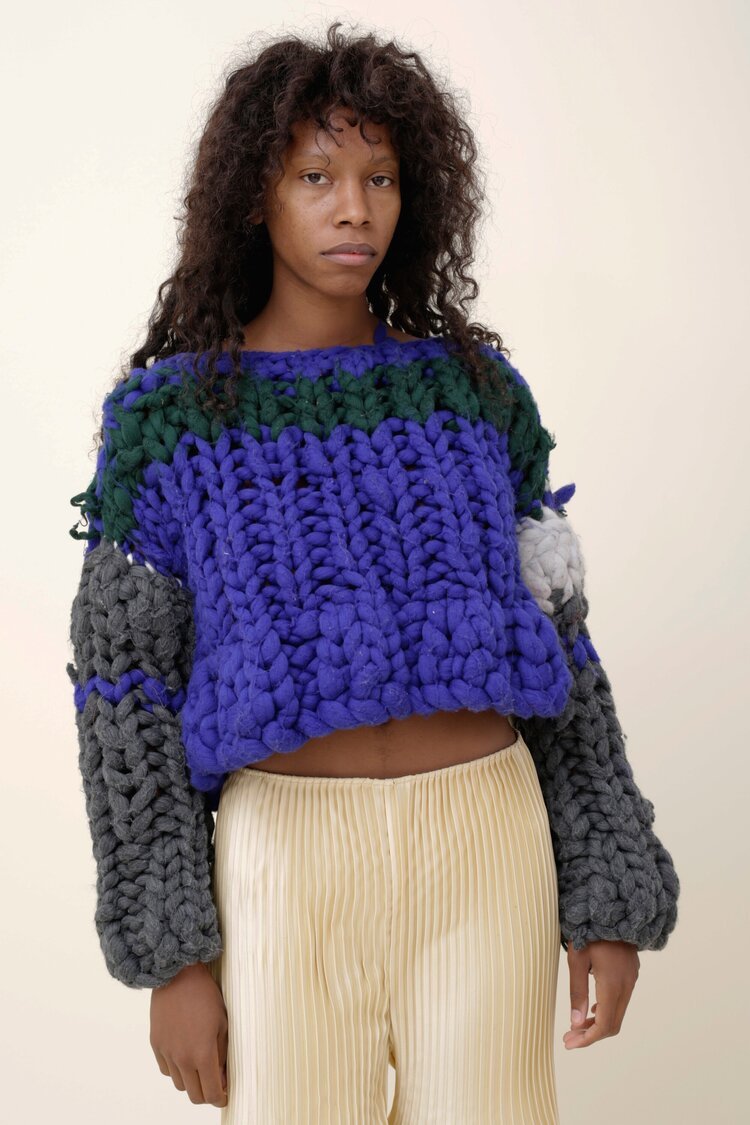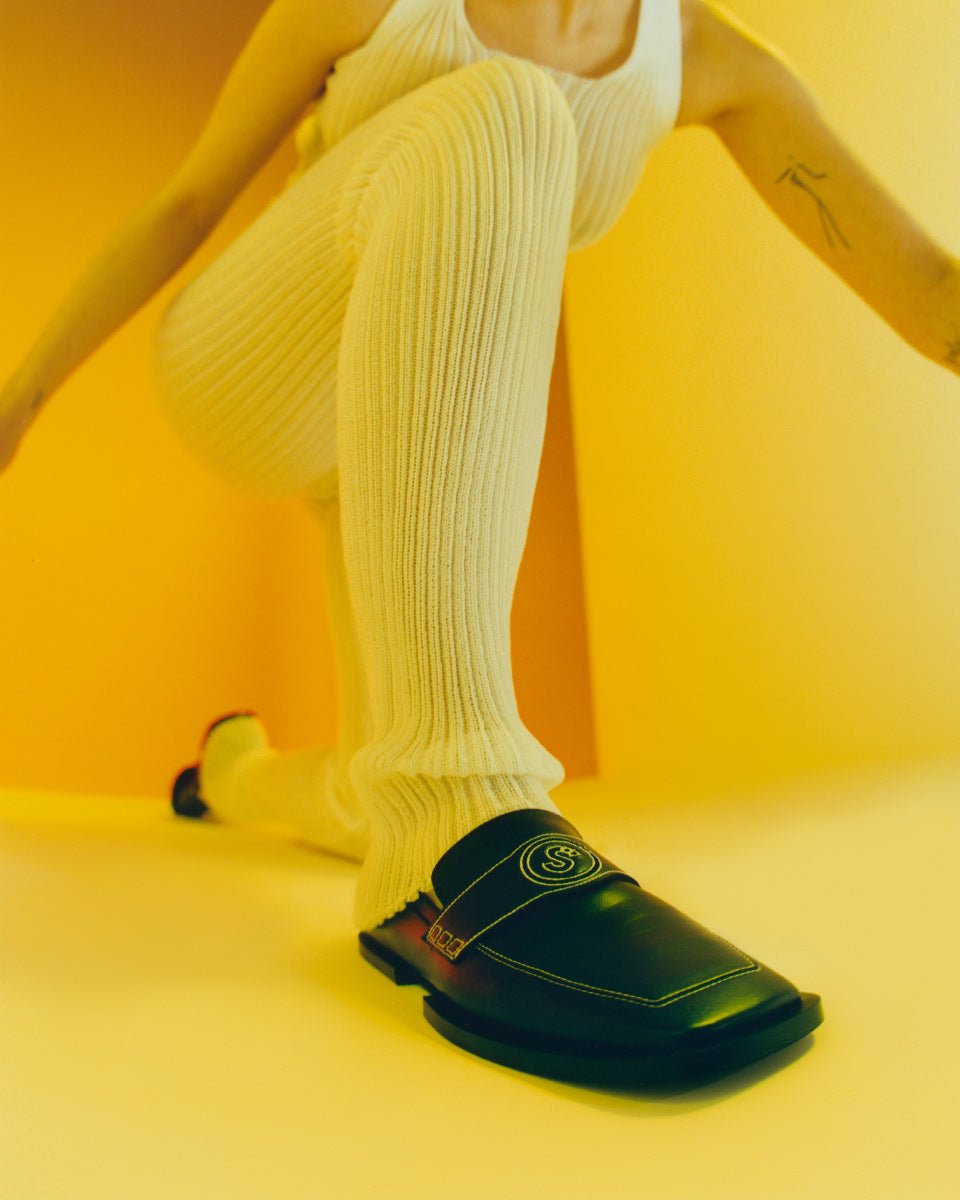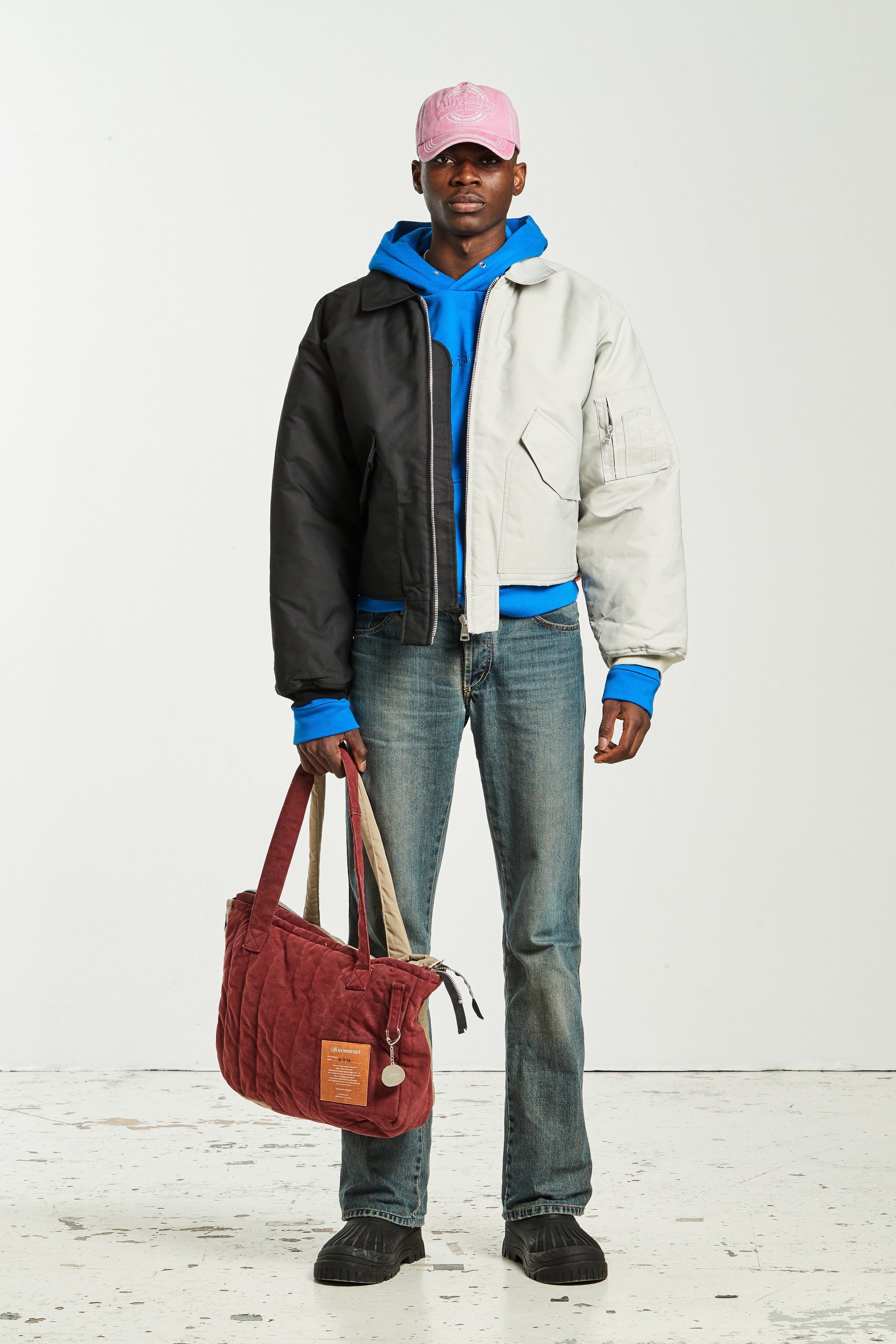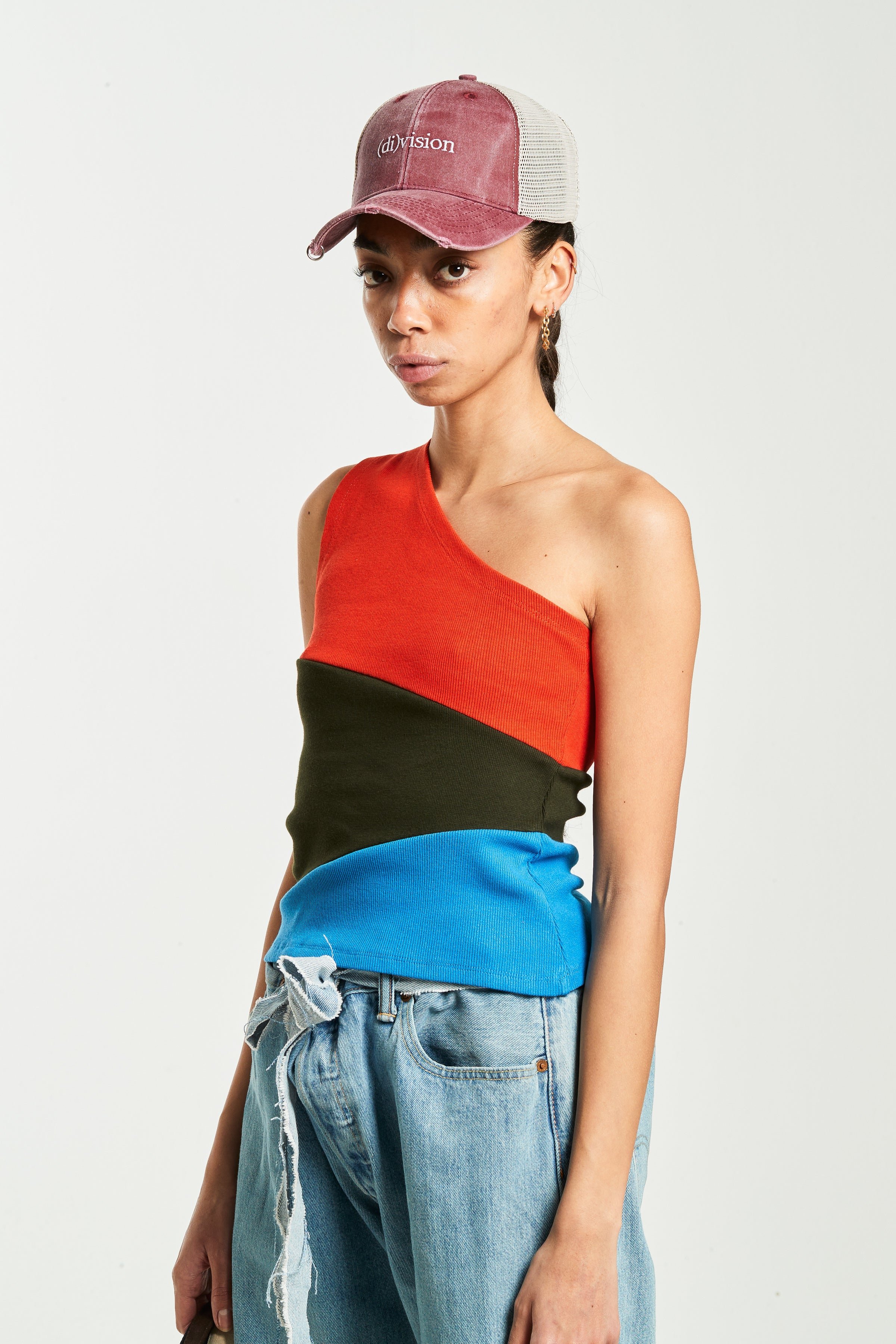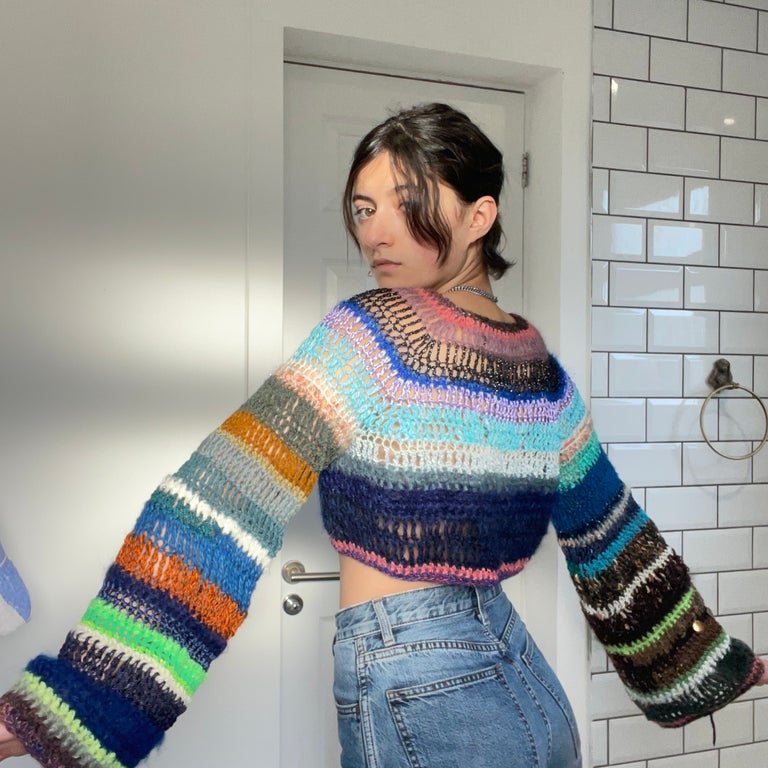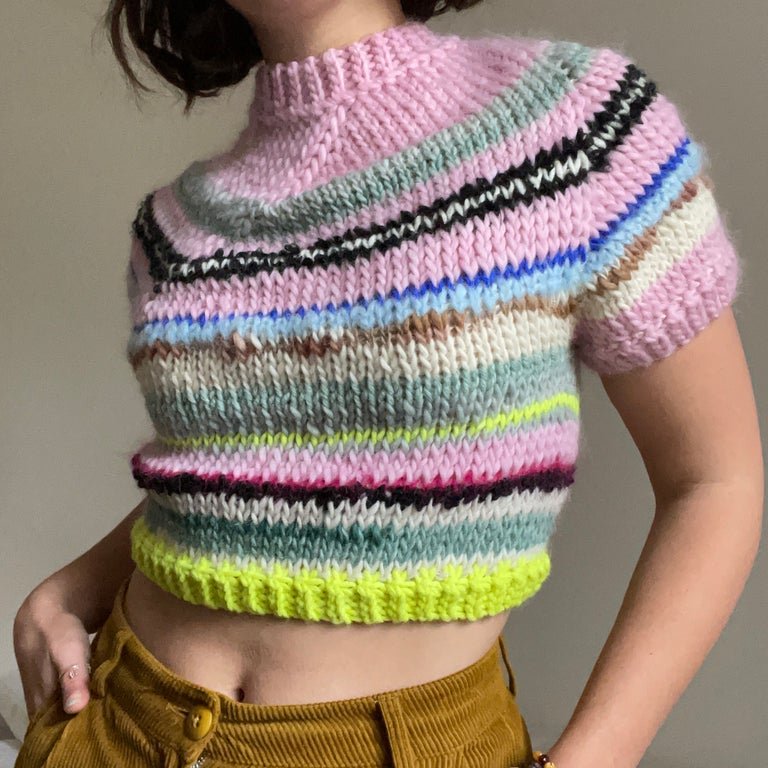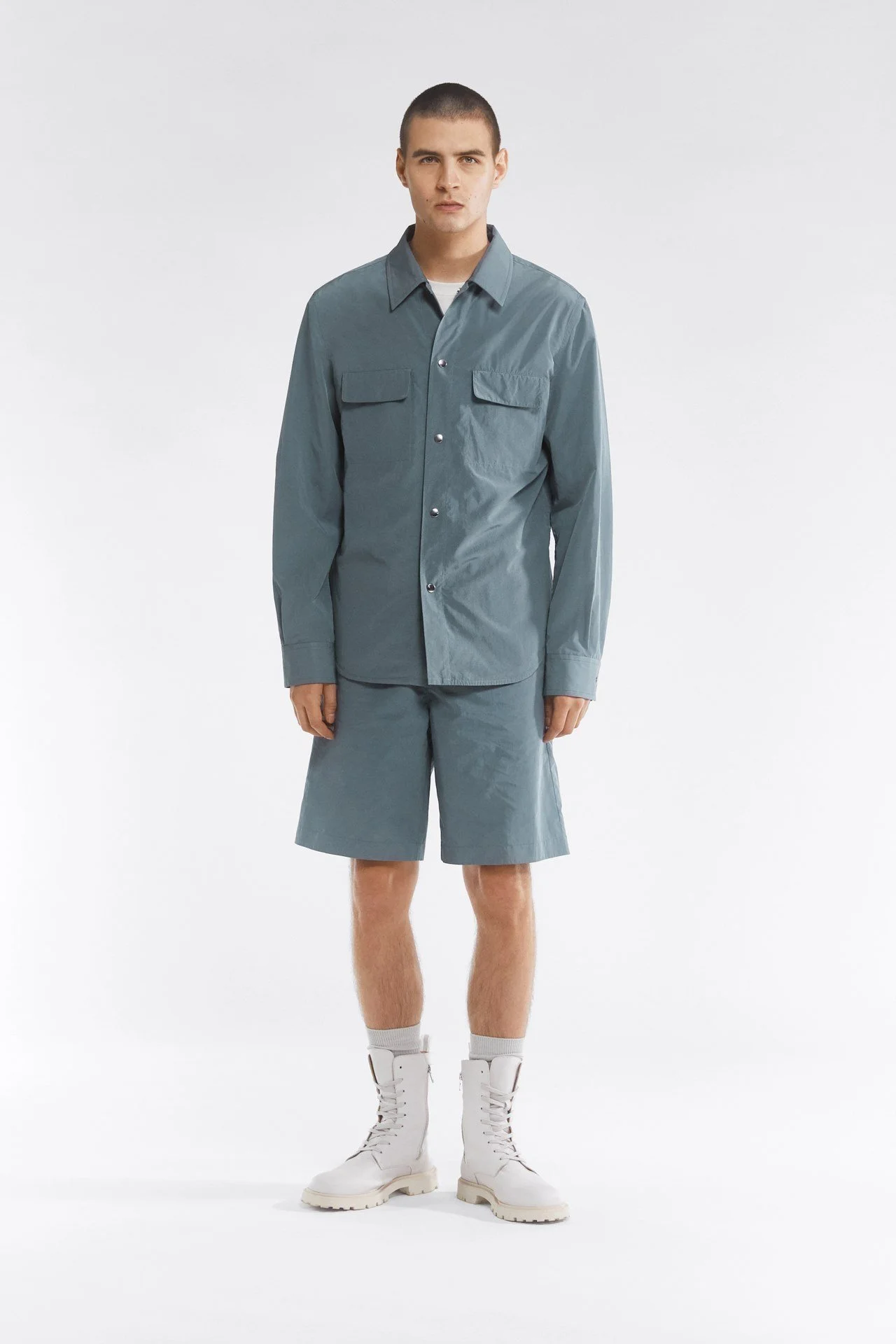Emerging Sustainable Brands
Design by Yuzhen Wang
As consumers, we are becoming more aware of the detrimental impacts that the fashion industry plays on the environment, specifically fast fashion companies. Sustainable clothing companies are making radical changes to the way in which fashion is being produced, creating a path for a more sustainable fashion-forward future through upcycling, low waste efforts, natural dyeing, repurposing deadstock, and more. Listed below are some of the most emerging and creative sustainable clothing companies that will allow you to use your purchasing power to create a cleaner environment while staying up to date with the latest fashion trends.
Shop our picks below
SC103
Varsity Pullover
SC103
Links Tote
SC103 is redefining experimental and ultramodern fashion through sustainable efforts such as repurposing deadstock and upcycling in order to produce unique made-to-order fashion and accessory pieces that are certain to stand out.
JIIJ
Silver Apollo Boots
JIIJ
Black Atlas Loafers
A sustainably conscious footwear brand, JIIJ focuses on gender-inclusivity with its broad range of sizing and stays true to its eco-conscious roots by using apple skin leather and shoe soles that are made from 50% post-consumer recycled waste. JIIJ allows you to “experience luxury with a conscious” and aims to move towards a 100% recycled waste target.
(di)vision
Split Bomber
(di)vision
One Strap Top Multicolor
Creating fashion out of already existing products is what (di)vision is all about, hence why (di)vision runs their brand by the motto “creating from what already is.” Their pieces are made from repurposed deadstock fabrics as well as upcycled materials, resulting in truly unique fashion-forward pieces that eliminate all of the waste that typically goes into making clothes.
DL1961
Isabel Wide Leg
DL1961
Nick Slim Leg
With a goal of raising the bar for the denim industry at large, DL1961 uses a technological approach to their denim manufacturing by turning old jeans and plastic bottles into their high-performance denim, shredding old denim and consumer waste, and using it for their yarn and fibers, and applying ozone and waterless laser technologies in the final construction. Needless to say, DL1961 is setting one of the highest standards for sustainable denim in the industry.
Reformation
Kourtney Dress
Reformation
Sonora High Rise Straight Jeans
Reformation started off as a vintage store in Los Angeles and quickly became one of the most trending and well-known sustainable clothing brands in the industry. Reformation makes all of their clothes from low-impact materials, rescued deadstock fabrics, and reproduced vintage clothing and will be certified climate positive in 2025! Along with every piece you purchase, you can track how much CO2, water, and waste you saved by buying a Reformation piece compared to a typical retailer in the US. Pretty cool, right?
Loupy Studio
Sweet Scrappy Jumper
Loupy Studio
Not Knit Tee
All pieces from Loupy Studio are one of a kind and handmaid by owner and designer Evvia Gonzales who constructs each piece from vintage or deadstock luxury materials. With vibrant colors, eye-catching designs, and unexpected combinations, Loupy Studio creates truly unparalleled made-with-love knit pieces.
Everlane
The Canvas Overalls
Everlane
The Performance Chino
Everlave runs on the core value of having radical transparency for its customers every step of the way. Creating clothes built to last far beyond a single trend, Everlane creates timeless pieces sourced with a sustainable frame of mind and using only ethical factories around the world. Having reached 90% of their goal to eliminate all virgin plastic from their supply chain, Everlane continues to reinvent new ways of producing clothes in a sustainable and ethical way.
IAMISIGO
Slit Front Paneled Shorts
IAMISIGO
Oversize Square Jacket
IAMISIGO is a Nigerian womenswear brand that is dedicated to continuing and preserving the ancestral textile techniques of designer Bubu Ogisi’s heritage. IAMISIGO uses natural and upcycled fibers to create vibrant wearable art pieces that are all individually captivating and breathtaking.
Iso.Poetism
Green Boa Loose Pants
Iso.Poetism
Black Tech Shirt
Designed in Copenhagen, Iso.Poetism creates futuristic high-fashion streetwear pieces using minimalist water dyeing technics along with patchwork from deadstock fabrics and leftovers from bulk production in order to reach their goal as a zero-waste brand.
Filippa K
Oscar Nylon Overshirt
Filippa K
Simona Jacket
Filippa K is aiming to change the fashion industry from fast to slow by creating pieces that last longer - aiding them in their mission of mindful consumption for all consumers. Filippa K uses recycled polyester, sustainable fibers, and ethical production practices when creating its timeless pieces. With a radical 2030 sustainability framework, Filippa K is sure to disrupt the fast fashion cycle in the best way possible.
Edited by Kieryn Alexander

